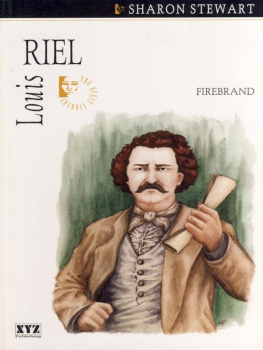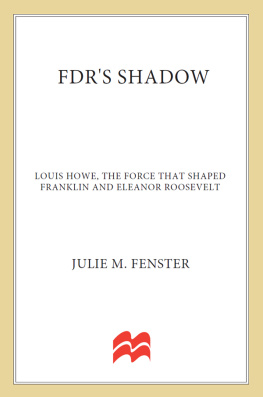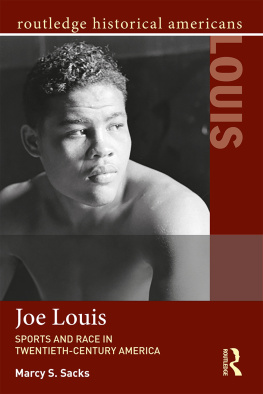ALSO BY PATRICK MYLER
Gentleman Jim Corbett: The Truth Behind a Boxing Legend
A Century of Boxing Greats
The Fighting Irish
Regency Rogue: Dan Donnelly, His Life and Legends
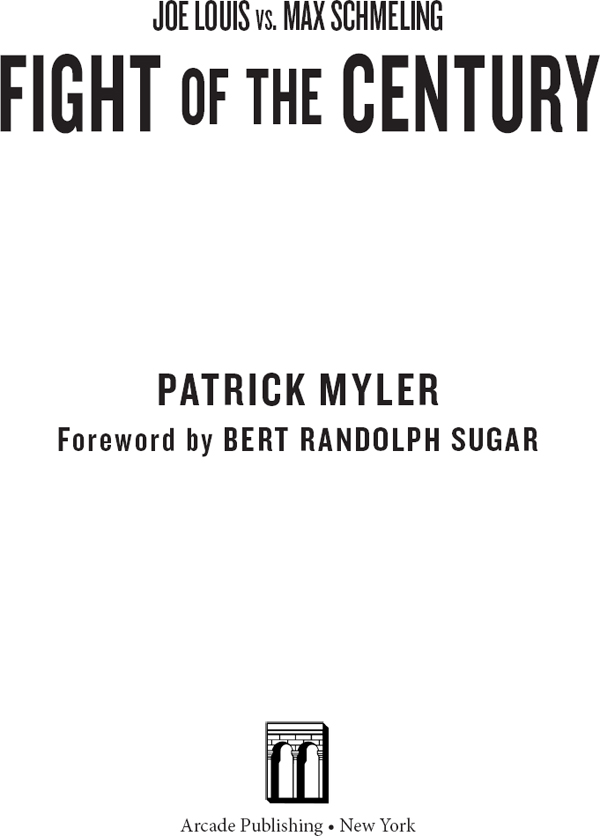
For my wife, Frances, with love and gratitude.
Copyright 2005, 2012 by Patrick Myler
Foreword copyright 2012 by Bert Randolph Sugar
All Rights Reserved. No part of this book may be reproduced in any manner without the express written consent of the publisher, except in the case of brief excerpts in critical reviews or articles. All inquiries should be addressed to Arcade Publishing, 307 West 36th Street, 11th Floor, New York, NY 10018.
Arcade Publishing books may be purchased in bulk at special discounts for sales promotion, corporate gifts, fund-raising, or educational purposes. Special editions can also be created to specifications. For details, contact the Special Sales Department, Arcade Publishing, 307 West 36th Street, 11th Floor, New York, NY 10018 or arcade@skyhorsepublishing.com .
Arcade Publishing is a registered trademark of Skyhorse Publishing, Inc., a Delaware corporation.
Visit our website at www.arcadepub.com .
10 9 8 7 6 5 4 3 2 1
Library of Congress Cataloging-in-Publication Data is available on file.
ISBN: 978-1-61145-645-5
Printed in the United States of America
Joe Louis was more than a sports legend. His career was an indictment of racial bigotry and a source of pride and inspiration to millions of white and black people around the world.
Ronald Reagan
Max Schmeling is my idol. When you meet this guy, you can just feel the history.
Vitali Klitschko, World Boxing Council
heavyweight champion, 20042005
CONTENTS
FOREWORD
Race is a four letter word that has ignited and incited people to war both inside the ring and out, across the earth. Joe Louis versus Max Schmeling was a matchmakers dream, a promoters nirvana, and Americas euphoric answer to the Third Reich as they marched their hobnailed boots across Europe. In one corner, there was Joe Louis, the measure of the uncomplicated man they called the Brown Bomber. His passion stood out even outside the ring, and, in a field devoted to fashioning halos, Joe Louis wore a special nimbus. Across from him was Max Schmeling, who was touted by the Nazi brigades as the ultimate representation of the Aryan race, the pride of German superiority, but whose own decency and courage belied the atrocities of those who supported him the most.
Louis dispersed his words as he did his punches, with a commendable economy of effort, saying a surprising number of things and saying them in a way we all wished we had. There was his evaluation of his countrys chances in the global confrontation with the Axis powers. Well win cause were on Gods side. Dignity. And then there was his enunciation of Billy Conns chances in their second fight: He can run, but he cant hide. Guts.
Reporters believed Joe Louis was the most dependable story in sports. To the public, he was all but invincible. But during their first fight in 1936, Max Schmeling, brought out of near retirement as yet another sacrificial lamb, derailed the Louis bandwagon, hitting him with a right hand over a lazy left no fewer than fifty-four times and finally knocking him out of myth and into reality in the twelfth round.
For most fighters, such a defeat was devastating. Their confidencethe essential property for successtook an enormous and sometimes unrecoverable jolt. But Joe Louis came back within two months to knockout another exchampion, Jack Sharkey. Almost one year to the day after his destruction at the gloves of Schmeling, Louis won the heavyweight championship of the world from Jim Braddock.
In the true American spirit, Louis went on to avenge his loss to Schmeling with a 124-second annihilation that set back the cause of the master race and brought joy to millions of Americans. This was 1938, when the world sat on the brink of a war that would result in unimaginable crimes committed in the name of such a cause. Joe Louis versus Max Schmeling is rightfully touted as a symbolic victory that took the sport into the arena of global consequence.
Thirty-three years later, there was another so-called fight of the century when Muhammad Ali raged in his first war against Joe Frazier at Madison Square Garden. While the Louis-Schmeling bout was categorized as a fight for racial superiority, Ali-Frazier was a war of racial degradation. When Muhammad Ali called Joe Frazier an Uncle Tom, the phrase cut through the Black community like a hot knife through butter. White America sat confused. Some praised Ali as a man who fought for his beliefs while others castigated him as a draft dodger. From the pulpit to the penitentiary, the most ardent Ali followers shuddered, and believed that he had gone too far in his verbal abuse of Frazier.
When the result came early in Round 15, as Frazier landed a left hook that put Ali on his back, many called it retribution for calumny. And in a decision, Ali lost his title.
Since Alis retirement, there has been a plethora of heavyweight champions, among them: Larry Holmes, Mike Tyson, and Lenox Lewisthe last undisputed champion. Several have had success in the ring but could not master the demons outside the ropes. The new millennium has presented the public with a series of heavyweight champions who are about as distinct as a loaf of bread. Its been said of the current four heavyweight title holders that if they were placed in a line-up with the Maytag repairman, none would be recognized. National pride, and a hunger for a better way of life, has been replaced by a sad series of pretenders presenting themselves as contenders.
While our entrance into the twenty-first century appears to be filled with hyperbole, extravagant embellishments of facts, and a craving for fame, Patrick Mylers Fight of the Century is a book about a time when the term had substance and meaning. In each chapter, he brings to life an era and a mindset when ability and efficiency could grasp a nation by its jaws and remind us that faith and hard work still had power, that a cause bent on evil could be subverted by a single voice speaking up, that a good right served with might was convincing.
Bert Randolph Sugar, 2011
ACKNOWLEDGMENTS
Writing a book, they say, is like having a baby. As a mere male, I am lost in my admiration for every woman who goes through that wondrous experience, but the comparison is not entirely frivolous. This particular offspring took me nine difficult months, from conception to birth. I would never have made it through the emotional strain, and the regular labor pains, without the unstinting nursing care of my family and good friends.
Tony Gee was available whenever help with research was needed. Niels Thorsen and Brian Doogan could always be relied on for advice and encouragement. John Exshaw generously offered to read the manuscript and provided useful information on Anny Ondra, Max Schmelings film-star wife, Briana Cechova, of the Department of Film History, Czech National Film Archive, and Luke McKernan, head of information, British Universities Film and Video Council, were also helpful in this regard.
U.S. boxing historians Tracy Callis and Hank Kaplan provided expert analysis on Louis and Schmeling, as did Nigel Collins, editor in chief of The Ring. The professional records of both fighters were compiled by Tracy Callis, with input from Luckett Davis, for Cyber Boxing Zone.
I am grateful to Bonus Books/Volt Press for permission to use extracts from the American edition of Max Schmelings autobiography and to Ullstein Verlag, Berlin, publishers of the original German version. I also thank Joe Louis Barrow Jr. for allowing me to quote from his biography of his father.
Next page
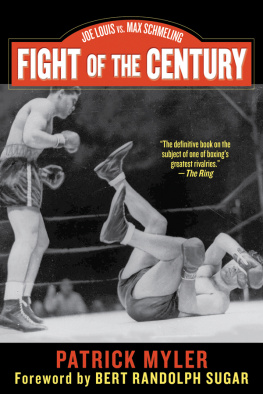
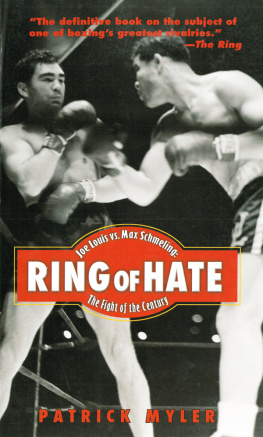

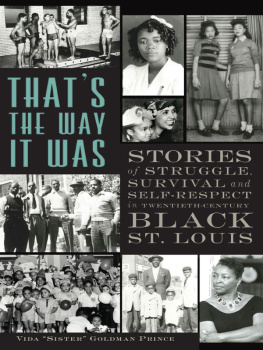
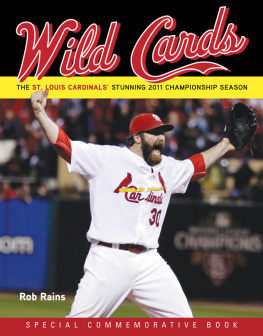
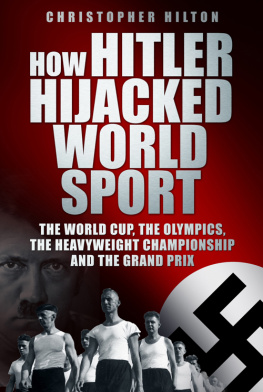
![Louis de Montfort - The Saint Louis de Montfort Collection [7 Books]](/uploads/posts/book/265822/thumbs/louis-de-montfort-the-saint-louis-de-montfort.jpg)
